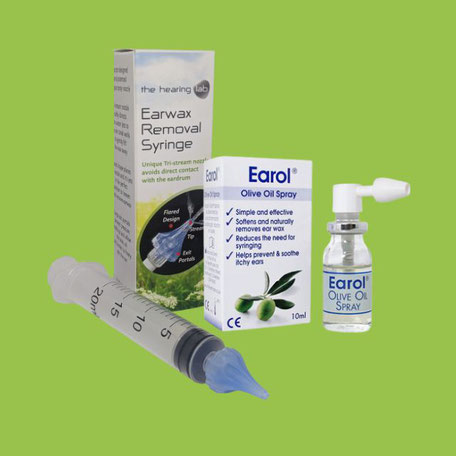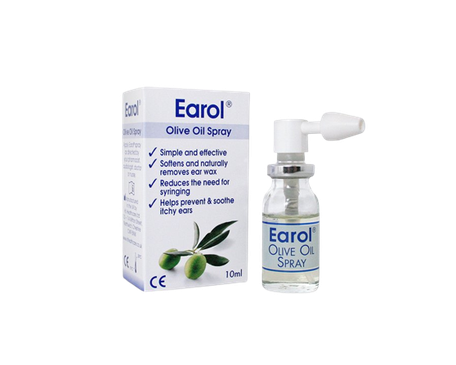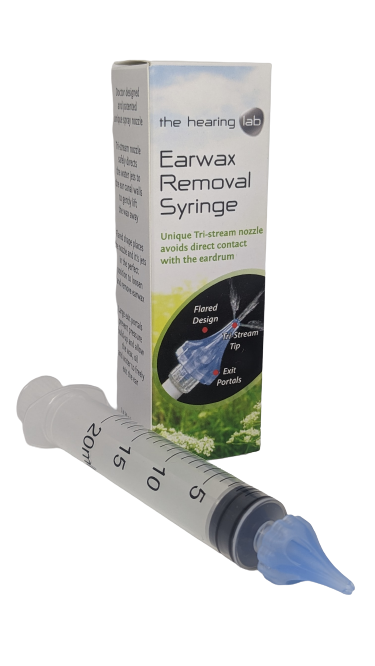The Ultimate Guide to Safe Ear Wax Removal at Home

Ear wax removal can be a tricky task, but with the right ear cleaning kit, you can easily and safely remove earwax at home. In this guide, we'll cover everything you need to know about using an ear wax removal kit and a home ear syringe to clear earwax and maintain healthy ears. We'll also explore the best way to remove ear wax and debunk common misconceptions about earwax removal.
How Ear Wax Affects Your Health
Earwax, also known as cerumen, is a natural substance produced by the glands in the outer ear canal. Its primary purpose is to protect the ear by trapping dirt, dust, and other debris. However, when earwax accumulates, it can lead to various issues, such as hearing loss, tinnitus, and ear infections. That's why it's extremely useful to know how to remove earwax safely and effectively at home.
The Importance of Earwax Removal
Removing earwax at home is crucial to maintaining ear health and preventing complications. Some common reasons to remove earwax include:
- Excessive wax build-up
- Difficulty hearing
- Discomfort or pain
- Tinnitus (ringing in the ears)
To learn more about earwax and its role in our health, visit our About Ear Wax page.
Choosing the Right Ear Wax Removal Kit
There are several earwax removal kits available on the market, each with its pros and cons. Here are some essential factors to consider when selecting the UK's best ear wax removal kit:
- Safety: Choose a kit that is specifically designed for safe and effective earwax removal. Avoid using makeshift tools or objects that can damage the ear canal.
- Ease of use: Opt for a kit that is easy to use at home, such as a home ear syringe kit or an ear irrigation kit.
- Effectiveness: Look for a kit that effectively removes earwax without causing discomfort or pain.
- Professional: Choose one that's recommended by health professionals.
How to Safely Use an Ear Wax Removal Kit
Step 1: Soften the earwax
Before using your ear wax removal kit or ear syringe kit, it's essential to soften the earwax. To do this, use a few earwax drops of warm olive oil from a spay dispenser such as Earol. Gently tilt your head to one side and apply the drops, allowing them to sit in the ear canal for about 5-10 minutes. This will help break down and soften the earwax, making it far easier to remove.

Step 2: Prepare the ear syringe
Fill the ear syringe or bulb with warm water. Be sure to use water that is close to body temperature to avoid dizziness or discomfort.

Step 3: Position yourself correctly
Stand or sit in front of a sink or basin to catch any water and earwax that is flushed out during the process. Tilt your head slightly to one side, with the ear you're treating facing the sink.
Step 4: Irrigate the Ear
Insert the tip of the ear syringe gently into your ear canal, taking care not to push it too deep. Slowly and gently push the plunger or squeeze the bulb, allowing the water to flow into your ear. The water will help flush out the softened earwax.
Step 5: Drain and dry
After irrigating your ear, tilt your head to the opposite side to allow the water and earwax to drain out. Gently pat your outer ear with a soft, clean towel to dry it. Repeat the process on the other ear if necessary.
Step 6: Clean the ear syringe
After completing the earwax removal process, thoroughly clean and disinfect the ear syringe, bulb, or other type of ear cleaner according to the manufacturer's instructions. This will ensure that it remains hygienic and ready for future use.
Tips for Safe and Effective Earwax Removal
To ensure that you're removing earwax at home safely and effectively, keep these tips in mind:
- Avoid using cotton buds, hair clips, or other sharp objects to clean your ears, as these can push earwax further into the ear canal or cause injury.
- If you experience pain, dizziness, or discomfort during the earwax removal process, stop immediately and consult a healthcare professional.
- If you're unsure about how to syringe your own ears or how to syringe ears at home, consider seeking guidance from a healthcare professional or visiting one of our earwax clinic locations.
- For those with a history of ear problems or who are prone to ear infections, it's best to consult a healthcare professional before attempting ear irrigation at home.
When to Seek Professional Help
While using an ear wax removal kit or a home ear syringing kit can be an effective way to remove earwax, there are instances when professional help is necessary. If you experience severe pain, persistent blockage, or signs of infection, it's essential to seek medical advice.
At our clinics, we offer professional earwax removal services, such as microsuction and ear irrigation. To learn more about these methods and how they work, visit our How Microsuction Works and How Irrigation Works pages. If you're a healthcare professional interested in offering these services, consider our Micro-Suction Training program.
Frequently Asked Questions
For more information about earwax removal and common concerns, check out our Ear Wax FAQ page. As well as answering questions such as "Can you syringe your own ears?" and "How to unblock ears full of wax?" we address alternative methods like ear candling. To learn why ear candling is not recommended, visit our Do Ear Candles Work? page.
Always Be Safe
Safely and effectively clearing earwax at home is possible with the right knowledge and tools. By choosing a suitable ear cleaning kit and following the proper steps, you can maintain healthy ears and avoid complications. Remember to consult a healthcare professional if you experience any issues or concerns during the earwax removal process.
For more information about our services and products, visit our Home Earwax Removal Kit page and read testimonials from satisfied customers who have successfully used our earwax removal services. And as always, if you have any questions or need further assistance, don't hesitate to contact us.
